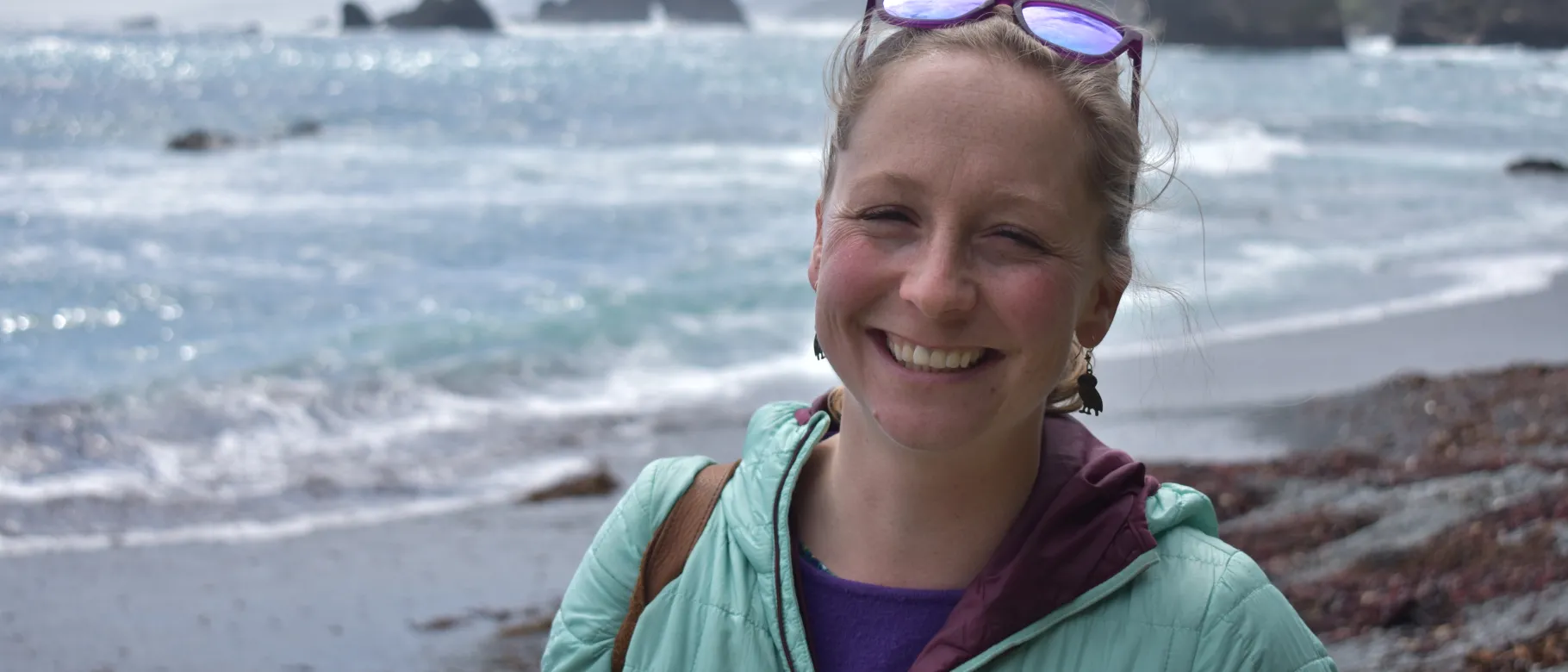Research by UNE’s Sarah Ebel informs fisheries policy in Chile

Sarah Ebel, Ph.D., assistant professor in the School of Marine and Environmental Programs at the University of New England, recently embarked on a research trip to Chile, where she was invited to present her research findings to the country’s national fisheries service, the Undersecretariat for Fisheries and Aquaculture (SUBPESCA), as the agency weighs material in development of a new fisheries law aimed at governing small-scale fishing ports.
The new law, called Ley de Caletas, seeks to recognize the patrimonial rights and belonging of coastal communities to their small-scale fishing ports. The law also allows small-scale harvesters the opportunity to protect their ports from gentrification, with a regulation that states that around 80% of the port be used for landing small-scale fisheries product, while also providing opportunities for communities to diversify their economic livelihoods by allowing the reappropriation of parts of the port to be used for other economic pursuits, such as tourism or businesses.
Ebel’s most recent research in Chile examines women’s roles in coastal communities, with a focus on how they engage in informal governance of marine resource and economic markets.
Ley de Caletas is Chile’s first fisheries law explicitly necessitating the integration of women into the administrative sector of the port. The progressive integration of gender in this law is important, Ebel said, as women have been under looked and underserved in coastal communities both in Chile and across the world. Most women work in informal sectors in and around the coast in the harvesting of seaweed and shellfish, processing of marine products, and the sale of fisheries product, she said.
With her colleague Gonzalo Saavedra Gallo, Ph.D., a professor at the the Universidad Austral de Chile, Ebel presented her findings to SUBPESCA on March 20 and 21 to suggest that the government broaden their understanding and integration of women into the new law.
Women are increasingly forming formal fishing unions, Ebel said, saying that, if the law does not acknowledge their historical and new involvement in and along the ports, it will be difficult to achieve socioecological sustainability and equity in the coastal zone.
According to Ebel, Chile is home to around 100,000 artisanal fisheries harvesters, and 26,000 of those individuals are female seaweed harvesters. The Los Lagos region, where Ebel conducts field research, is home to over 24,000 artisanal harvesters, and livelihoods in the region are deeply interconnected with the ocean, being tied to small-scale fisheries harvests and employment by global aquaculture farms.
The government’s goals of supporting sustainable development in Chile’s fishing communities aligns with the scholars working in those regions. Ebel said these recent meetings have spurred a more formalized relationship between scholars and SUBPESCA to work together to improve livelihoods and ecosystem sustainability along Chile’s coastal zone.
“The opportunity to present my findings after 10 years of research in southern Chile is both exciting for me as a scholar and also has direct impact on the formation of law and policy in Chile’s coastal zone,” Ebel remarked.

Ebel presents to SUBPESCA